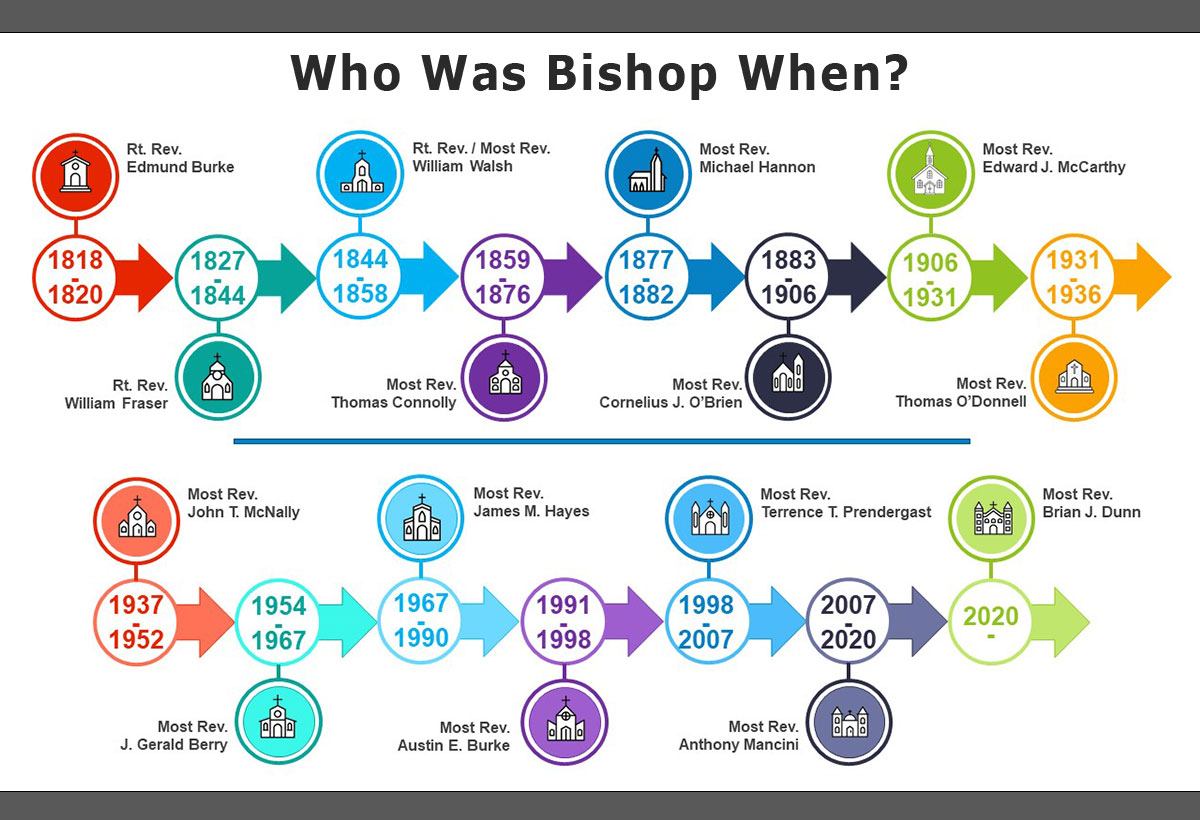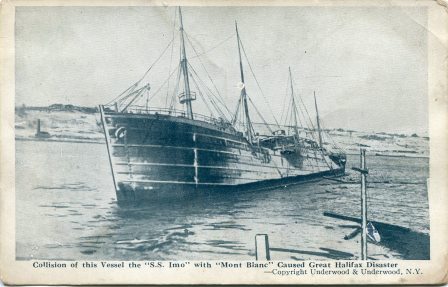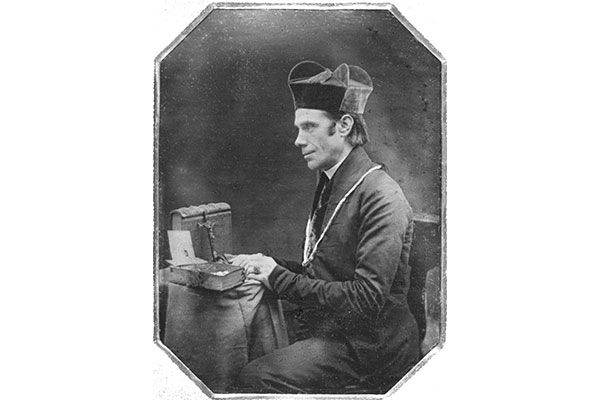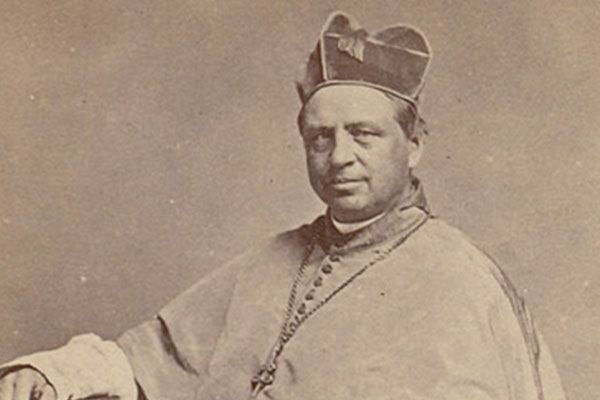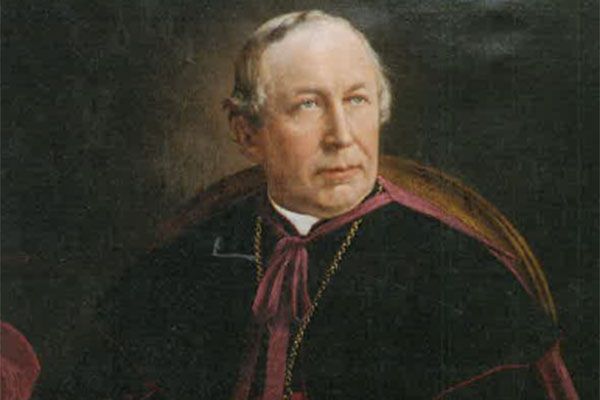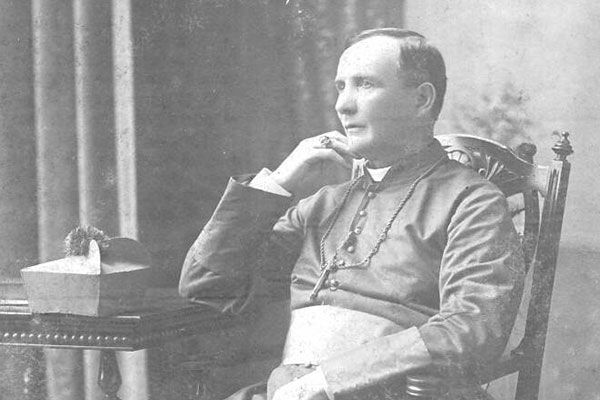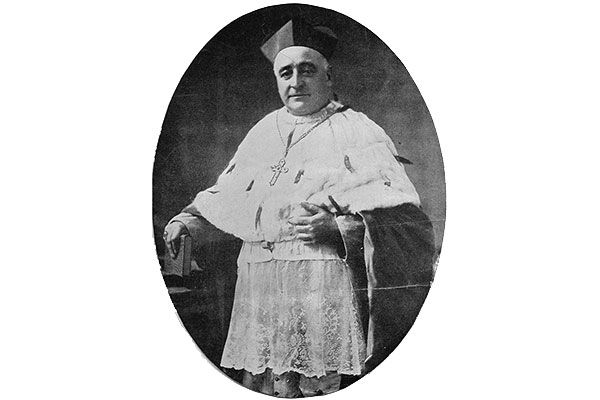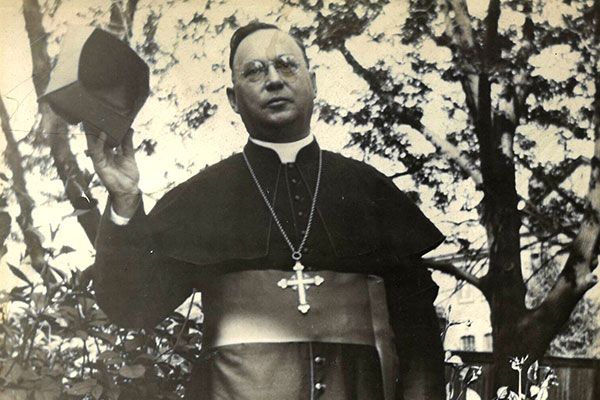
MAiD - Reflection Series
Preview
What is the meaning of life? The legalization of euthanasia (Medical Assistance in Dying) in Canada in 2016 has raised some serious questions on the meaning and value of human life. Traditional Christian values have insisted that euthanasia is not compatible with the Christian faith. Today marks the first installment of a series of reflections that describe the Christian idea of death and gives clear reasons why euthanasia is not consistent with Christian values and a Christian life.
The Meaning of Life
What is the meaning of life? For the Christian our meaning comes from knowing, loving and serving Christ both in this world and into the next. Having faith in Christ brings about personal change as our values, ideas and desires are gradually transformed to become the values, ideas and desires of Christ. Our respect for human dignity grows as does our desire to help people who are experiencing vulnerability. We need to remember that when we look into the face of a person who is very sick, or who is living with a disability or chronic health condition we are looking at the face of Christ: “Whatever you did for one of the least of these brothers and sisters of mine, you did for me.” Mt. 25:40 (NIV) Despite what we may think, the death of a patient through euthanasia does not help anyone know, love or serve Christ better. Christ’s response to people who are experiencing vulnerability is to come alongside them, alleviate their suffering and support them in their time of need. (cf. Luke 10:25-37) Jesus never killed anyone, and neither should we.
At Home Reflection: Faith in Christ helps us to see the creative hand of God in each person we meet, as the psalmist says, “I praise you because I am fearfully and wonderfully made; your works are wonderful, I know that full well.” Ps. 139:14 (NIV) Spend time at home reflecting on God’s purpose for humanity and for your own life.
The Christian Medical and Dental Association of Canada offers a three-part course on this topic called Dying with Christ – Living with Hope. For more information visit https://cmdacanada.org/dying-with-christ-living-with-hope/
Preview
Whose life are you living? The apostle Paul said “it is no longer I who live, but it is Christ who lives in me.“ (Gal 2:20 NRSV-CE) By a series of decisions and actions made in faith the Christian expresses their desire to be like Christ in their life in the world. But what about euthanasia? Is this something that a Christian can participate in and still imitate Christ? Traditional Christian values have insisted that euthanasia is not compatible with the Christian faith. Today marks the second installment of a series that describes the Christian idea of death and gives clear reasons why euthanasia is not a choice consistent with living your life in Christ.
Whose life are you living?
The apostle Paul said the following in his letter to the Galatians “it is no longer I who live, but it is Christ who lives in me.“ (Gal 2:20 NRSV-CE) By a series of decisions and actions made in faith, the Christian expresses their desire to be like Christ in their life in the world. This requires a willingness to turn away from the temptation of selfish motives and do the right thing, gradually making Christ more and more present in the world. Sometimes it can be difficult to make these choices. Christians have the Holy Spirit which leads us in all truth so that we know what is good and have the courage to do it. The Holy Spirit speaks through the scriptures and the teaching of the Christian community to help us to choose what is the will of Christ: “what is good and acceptable and perfect”. (Rom. 12:2 NRSV – CE) Traditional Christian teaching on euthanasia follows the Ten Commandments which teach: “You shall not murder” (Ex. 20:13) As we “do the right thing” we find that we are rewarded with an even greater trust in God who cares for us in the midst of our vulnerability. (cf. Mt. 6:33) The more vulnerable we become the more we learn to rely on Christ. This process gradually prepares us for eternity in heaven when He will truly be our “all in all”. (cf. Col. 3:11)
At Home Reflection: Take a moment and ask yourself this question: “Have I turned over my life completely to Christ?” For most people, if we are being honest, this process is gradual. Take a moment and do a personal inventory. What areas of your life have you not given over to Christ? What areas do you make decisions before consulting him because you are not sure what he will say? Ask Jesus in prayer to come into your heart and direct you to be the person he wants you to be in all areas of your life. Spend time at home reflecting on God’s purpose for humanity and for your own life.
The Christian Medical and Dental Association of Canada offers a three-part course on this topic called Dying with Christ – Living with Hope. For more information visit https://cmdacanada.org/dying-with-christ-living-with-hope/
Preview
What are you afraid of? Canada has one of the most technologically advanced healthcare systems in the world yet many Canadians are afraid that they will not be able to cope with end-of-life health care challenges. Palliative care physicians tell us that they are able to effectively treat all pain at end of life. Many people are choosing euthanasia because of the fear of pain, rather than the pain itself. What does Jesus tell us about fear and how to cope with it? This is the third in a series of reflections on a good Christian death and how euthanasia fuels fear, rather than trust in God’s love.
What are you afraid of?
What are you afraid of? God tells us more than 100 times in the Bible to not be afraid. In his first letter, John reminds us that “perfect love casts out fear”. (1 John 4:18 NRSV-CE) Jesus reminds us that we are of more value to God than anything else.
Are not five sparrows sold for two pennies? Yet not one of them is forgotten in God’s sight. But even the hairs of your head are all counted. Do not be afraid; you are of more value than many sparrows. (Luke 12:6-7)
Of course, it is natural to feel afraid at certain points in our lives. For those who have anxiety, fear may be a more common occurrence. The most important question is what do we do with the level of fear that we experience? Do we allow it to paralyse us and keep us from doing the right thing? Knowing God in an intimate way establishes trust in his loving kindness and helps us overcome fear, by reminding us of his presence. We can have courage even in the face of great challenges through the grace of God given to us through the sacraments, the scriptures and the love and support of others. In his last words in the gospel of Matthew to the early church in crisis Jesus says “And remember, I am with you always, to the end of the age.” (Mt. 28:20 NRSV – CE)
Christians don’t even need to fear death. As the apostle Paul says:
“Where, O death, is your victory? Where, O death, is your sting? The sting of death is sin, and the power of sin is the law. But thanks be to God, who gives us the victory through our Lord Jesus Christ. (1 Cor. 15:55-57 NRSV-CE)
Catholics love to pray the “Hail Mary” prayer, asking the Mother of Jesus to pray for us “now and at the hour of our death”. We seem to intuitively know that the hour of our death may be an uncertain and very dynamic time. What a comfort to know that Christ himself will be with us, along with the Blessed Mother, the communion of saints in heaven and the Christian community on earth to see us through our final journey to the celestial courts. And imagine what sights we will behold:
He will dwell with them, and they shall be his people, and God himself will be with them; he will wipe away every tear from their eyes, and death shall be no more, neither shall there be mourning nor crying nor pain any more, for the former things have passed away. Revelation 21:3-4 NRSVCE
For those who struggle with fear, there is the constant unconditional love of Christ that gives us strength to face the greatest hardships, even death.
At Home Reflection: Are you afraid of death? Spend some time praying about it. What is the aspect of death you fear the most? Could you discuss this particular fear with a trusted friend, health care professional, or family member? This is one way to uncover a fear and to respond constructively to it by getting the facts. Or take the fear to Jesus and ask him to help you cope with it. Spend some time slowly reading the three scripture passages in today’s reflection as you meditate on the love of Christ for each of us. Try to rest in His Presence and hopefully your fear will lessen in intensity. “God is our refuge and strength a very present help in trouble.” (Ps. 46:1 NRSV-CE)
The Christian Medical and Dental Association of Canada offers a three-part course on this topic called Dying with Christ – Living with Hope. For more information visit https://cmdacanada.org/dying-with-christ-living-with-hope/
Preview
What is a good Christian death? In the 14th century the church responded to the challenge of the Black Death with a manual that listed the components of a good death from a Christian perspective. They all focus on the preparation of the soul for passing into new life in Christ in heaven for all eternity. The emphasis is spiritual. Unfortunately, the modern world in which we live is very materialistic. The existence of the soul is denied and as a result decisions can be made that do not nourish the soul and may even damage it. Sadly, many of the promoters of euthanasia do not believe in God and do not see the spiritual damage brought by their policies.
What is a good Christian death?
During the Middle Ages, Europe was ravaged by the Black Death. A very popular manual arose which summarized for the average Christian the key steps to a good death. It was a comfort to people to set their eyes upon heaven to find solace and peace during a time of great social upheaval.
The key components of this manual called De Ars Moriendi (The Art of Dying) follow:
- We are called to prepare for death by living a good life, being prepared at any moment to be called home to the Lord
- We are faced with five primary temptations during the dying process (loss of faith, despair, impatience, pride, and avarice). We are called to overcome them by practicing the virtues (faithfulness, patience, humility and charity)
- We are urged to reaffirm our faith, repent of our sins, and draw closer to Christ. (This ordinarily occurs within the sacraments of the Anointing of the Sick, Reconciliation and Eucharist.)
- We are called to imitate Christ as HE faced death.
- We are invited to provide a testimony to those caring for us regarding our faith in Christ.
- When we are on the threshold of death, the final duty of those caring for us is to pray for our soul.
These simple, yet profound, prescriptions focus on the spiritual well-being of the patient and their preparation for eternal life. As Jesus promises in the gospel of John: “I am the resurrection and the life. Those who believe in me, even though they die, will live, and everyone who believes in me will never die.” (John 11:25-27 NRSV-CE)
At Home Reflection: What is good Christian death? Many people write a will, choose a Power of Attorney or a substitute decision maker. But have you made spiritual plans for your death? Sometimes people’s families have limited exposure to the Church and may not know how to make the appropriate arrangements. Take some time to write down your wishes and share those with your loved ones. It is important that we leave a good witness of our faith in Christ after our death. One never knows who might be impacted by a life lived in faith.
The Christian Medical and Dental Association of Canada offers a three-part course on this topic called Dying with Christ – Living with Hope. For more information visit https://cmdacanada.org/dying-with-christ-living-with-hope/
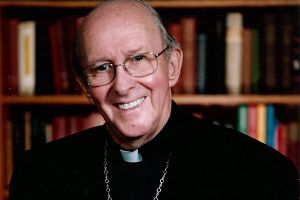
HAYES, Most Reverend James Martin, Archbishop Emeritus of Halifax, died on August 2nd, 2016 in the Halifax Infirmary at the age of 92.
Born in Halifax in 1924, the eldest son of the late Leonard James and Rita (Bates) Hayes, he received his education at St. Thomas Aquinas School, St. Mary’s High School, St. Mary’s College, and in 1943 entered Holy Heart Seminary. He was ordained to the priesthood by Archbishop McNally on June 15, 1947.
Father Hayes’ first pastoral assignment was as a curate at St. Mary’s Cathedral. It was at this time that he became a regular visitor at the hospitals, bringing the sacraments to those who were ill and accompanying them and their families with prayer.
He spent three years in Rome (1954-57), earning his doctorate in Canon Law, and perfecting his French, Latin and Italian. Returning to Halifax in 1957 by ship, he met many Italian families immigrating to Canada, and recognized the need to provide them with pastoral care; so he established a chaplaincy to the Italian community of Halifax, with which he maintained a pastoral connection to his death.
In 1957, he was named Chancellor of the Archdiocese of Halifax and assistant at St. Thomas Aquinas Parish and in 1964, he became Rector of St. Mary’s Cathedral Basilica.
James Martin Hayes was ordained Titular Bishop of Reperi on Easter Tuesday, April 20, 1965, and accepted the responsibilities of Auxiliary Bishop in the Archdiocese of Halifax. Following the death of Archbishop Gerald Berry, he was appointed Archbishop of Halifax.
Archbishop Hayes attended the first session of the Second Vatican Council as Archbishop Berry’s secretary, and was himself a Council Father for the final session in 1965.
Archbishop Hayes shepherded the Archdiocese of Halifax from 1967 to 1990. During this time he also served as President of the Canadian Conference of Catholic Bishops (1987-89), Chair of the Episcopal Commission for Liturgy, and member of Canada’s National Council on Liturgy. He served on numerous other committees and was a delegate for two Synods of Bishops. In 1984, he hosted the visit of Pope John Paul II to our province. He was an advocate for inter-religious dialogue, for which he received the recognition of the local Jewish community. He was strongly committed to Christian Unity and was one of the founders of the Atlantic School of Theology. He also served as Chancellor of Saint Mary’s University.
Archbishop Hayes retired as Archbishop of Halifax in 1990 and he then entered into full-time ministry caring for the sick and the dying, as chaplain in Palliative Care at the Queen Elizabeth II Health Sciences Centre in Halifax until his retirement from this ministry in 2012.
Archbishop Hayes received a number of honorary doctorates (St. Mary’s University, Mount St. Vincent University, the University of King’s College, St. Francis Xavier University, Université Sainte-Anne, St. Thomas University and Atlantic School of Theology) as well as other honours and medals, including his induction to the Order of the Star of Italian Solidarity in 2009 as Grand Officer First Class, the highest order of merit bestowed by the Italian government to a non-Italian citizen. In 2016, he was honoured by the Atlantic School of Theology with the first annual James M. Hayes Symposium on the pastoral care of the sick and dying.
Archbishop Hayes is survived by his sister Marie Whalen, a niece, Mary Rideout, both of St. John’s NL; nephews Timothy, Hamilton ON; Patrick and Daniel, Toronto ON; John and James, St. John’s, NL and many grandnieces and grandnephews. Besides his parents, he was predeceased by a brother, Rev. John Hayes and a sister, Sr. Elizabeth (Betty) Hayes, SC.
Funeral rites was celebrated at St. Mary’s Cathedral Basilica, Halifax. The committal took place, at Gate of Heaven Cemetery, Lower Sackville.
Memorial Donations may be made to the St. Mary’s Cathedral Basilica Foundation established for the upkeep of the church he so long served as Rector and Archbishop.
Mass of Christian Burial for Archbishop James M. Hayes
was livestreamed Friday, August 5, 2016. Click Here to Watch
Archive Sources
Contact the Atlantic School of Theology Library, 660 Francklyn St., Halifax,NS, B3H 3B5, (902) 423-7986, www.astheology.ns.ca/library/index.html
However, sacramental records on microfilm are available for public access through various institutions.
- For the former Archdiocese of Halifax, Baptismal records up to and including 1915, and First Communion*see note, Confirmation, Marriage and Death records up to and including 1925 may be viewed at Nova Scotia Archives. archives.novascotia.ca
- For the former Diocese of Yarmouth, sacramental records on microfilm, with the aforementioned date restrictions, may be viewed at the Argyle Township Court house Archives. www.argylecourthouse.com/content/yarmouth-county-catholic-church-records-on-microfilm/
- For sacramental records of the Diocese of Antigonish (including Antigonish, Guysborough, Pictou and Cape Breton Island) contact the Diocese of Antigonish, Chancery Office, 168 Hawthorne St., Antigonish, N.S., B2G 2L7. Phone (902) 863-3335 email:
This email address is being protected from spambots. You need JavaScript enabled to view it.
*NB: Parishes are not required, by Canon law, to keep detailed records of First Communion. As such, many parishes do not.
The Halifax Regional Library has a collection of published materials on Halifax and surrounding communities, including historical street names, place names, and older newspapers. The downtown branch of the Halifax Regional Library is at: 5440 Spring Garden Rd., Halifax, NS, B3J 1E9, (902) 490-5710, www.halifaxpubliclibraries.ca
Sorry, we do not have access to the records of the Home of the Guardian Angel.
Research will be subject to a $50/hr research fee. This fee applies to the time spent searching for documents and records, and is billable, even if the records are not found, or do not prove to be useful. The first $50 is payable before the research begins. The Archdiocese of Halifax reserves the right to refuse a research request. Records deemed closed to the public will not be made available to researchers.
- Researchers must sign in when they arrive.
- Researchers are NOT permitted, under any circumstances, to enter the archives vault.
- Researchers will work with the Archivist to determine what records or type of records would be useful, and the archivist will bring the documents up from the vault to be viewed.
- Researchers will be closely supervised.
- NO FOOD OR DRINK is permitted in the research area.
- PENCIL ONLY may be used for note taking.
- NO MARKS OF ANY KIND may be made on the archival documents. This precludes also the use of “sticky notes.”
- Material must be handled as little as possible and with great care. You may be required to wear vinyl or cotton gloves.
- The researcher will be responsible for restoration costs associated with damage to archival material inflicted during research, whether intentional or not.
- Do no lean on archival files or volumes, or place paper on documents while taking notes.
- Do not place anything on top of archival material.
- Do not rearrange or disturb in any way the order of archival material.
- Researchers may not make photocopies. Digital photographs may be taken, WITHOUT FLASH. The Archivist or Archival Assistant will make photocopies for researchers if it is possible to do so without damage to the material.
- No archival material may be removed from the building.
Updated March, 2017
Access to archival records may be provided for:
- parishioners conducting official parish business;
- members of religious communities conducting research for their community.
Access for other reasons will be considered on a case by case basis, and may be subject to a $50/hour research fee. This fee will apply to research time, whether or not the sought after information is located, or proves useful to the researcher.
Requests for access must be made in writing (email or regular mail) to:
Catholic Diocesan Centre
1559 Brunswick St., Suite 101
Halifax, NS B3J 2G1
Attn: Archives
By email:
Include your name and credentials, your contact information, the goal of your research, and the date/time you would like to visit. Once approved, an archivist will contact you to discuss your research needs. Access is by appointment only, at least 3 weeks in advance. Research advice is not available on site. Visits will be monitored. Confidentiality of third parties will be respected and may limit access to some records.
If you are uncertain as to where the sacrament may have taken place, please contact the archives office for assistance.
Please note that Parents or legal guardians may obtain sacramental records for their children if they are under the age of 18. The sacramental records of adults 18 and over must be requested by the person(s) named in the record. The record cannot be released to a Third Party, unless written proof of power of attorney is presented.
The Archdiocese of Halifax-Yarmouth Archives holds very limited records from these two institutions. Due to the confidential nature of these records, access to the public is not permitted. The research requests of direct descendants of former residents will be considered on a case by case basis, by written request, and may be subject to a $50/hr research fee.
100th Anniversary of the Halifax Explosion
St. Peter's/St. Mary's Burial Registers 1784-1842
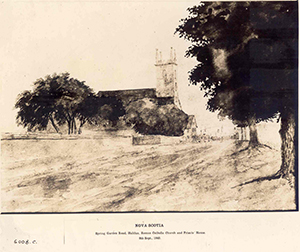
St. Mary's, Sept 8, 1840
(showing cemetery walls)
In May of 2012, the transcription of St. Peter’s/St. Mary's Church Cemetery burial records from 1784 to 1842 came to a conclusion. St. Peter’s/St. Mary's Cemetery was located on the corner of Spring Garden Road and Grafton Street, including what is now St. Mary’s Cathedral Basilica and the former St. Mary’s Girls’ School on Grafton (1893 – 1975). This initiative to produce a readable, searchable database, was completed through the efforts of Dr. Gordon Pollock, PhD, and Mrs. Sharon Riel (Archivist with the Archdiocese of Halifax-Yarmouth). Read more
The Burial Registers of St. Peter’s/St. Mary’s: Prologue
St. Peter's/St. Mary's Burial Registers - Chronological
St. Peter's/St. Mary's Burial Registers - Aphabetical
Archives Contact
Sharon Riel
Archivist - Halifax Office
Archdiocese of Halifax - Yarmouth
(902) 429-9800 ext 314
